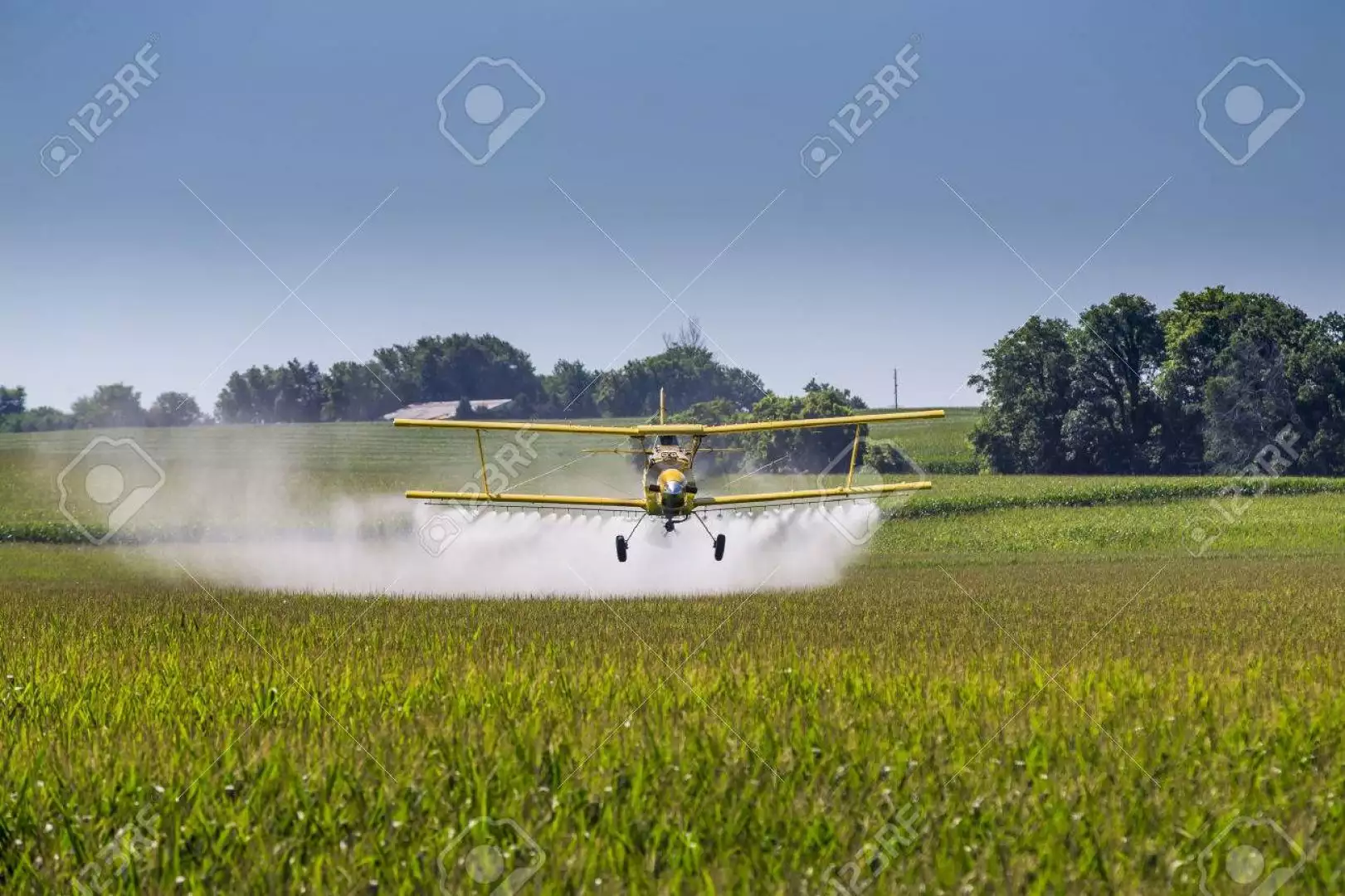
Secrets of a Cropduster's Wife
My sleeping husband’s feet moved like a ducks’, paddling beneath the covers. Then one fist began to rotate. He was flying in his sleep again. That, among other oddities—like hoping for pestilence or watching the wind—became an accepted part of our marriage. I was a cropduster’s wife.
I remember driving to work one morning. Approaching an overpass, I noticed an ag plane spraying a field near the freeway. It was one from the dusting operation that employed my husband. Then, another plane from the same company, approached from the north, ferrying back from another field. I knew my husband piloted one, but both planes looked identical. Just as my car crested the overpass, I saw the ferrying plane fly over the working airplane. The working plane pulled up at the end of a spray run, heading for the underbelly of the ferrying plane. I was about to witness a mid-air collision. At the last second, both planes darted away from one another. Later, the pilots got an earful from me for the scare. They grimaced and said, “Ooo, you saw that?”
A cropduster’s wife probably never develops an ag pilots’ nerves of steel, but it helps her to accept some inalienable facts. There are going to be close calls. There are going to be crashes. There are going to be power outages.
Sometimes, power lines can’t be avoided. When a cropduster determines he can’t get over or under one, his best course of action is to use the propeller like a bologna slicer and head straight for the wire. My husband did just that in a field near the small town near where we used to live. The power was out all day in a town where everyone knew everyone. It soon became apparent how unhappy the local businesses were when I entered one of the local eateries. I made a swift retreat. Never enter a restaurant that is suffering from lack of power if your husband has caused it.
I learned that early morning phone calls are never good news. I’ve had my share. Cropdusters head for work before dawn. In the darkness, they line out the day’s work, taking off at the first hint of sunlight. I remember the phone ringing at six a.m. one morning.
“There’s been a little incident,” my husband said in a voice too calm.
“How little?” I asked.
“Nothing really. I’m heading for the hospital now.”
I jumped in the car and headed for the hospital too. My stomach felt queasy when I drove past the airstrip. The burnt skeleton of an airplane fuselage lay wheels up at one end of the runway. If I hadn’t heard my husband’s voice on the phone, I wouldn’t have believed he was alive. It’s never a good day when your boss sprays you with fire retardant foam while you crawl out from the collapsing canopy of an upside-down airplane.
But it’s not all bad. Beyond the hard landings, you learn about little oddities that occur in a cropduster’s day. When a cropduster flies low over a barbed-wire fence, he lifts his feet. If he flies over a barbed-wire fence and under a wire, he lifts his feet and ducks his head.
Cropdusters take off and land more in one day than some airline pilots do in a week. It becomes as common as pulling out of a driveway. Occasionally, they fly just to fly. After all, they wouldn’t have become pilots if they didn’t love flying. Honestly, I never worried about my husband looking at another woman’s legs. It was the way he looked at aircraft landing gear that made me jealous. Any other pilot’s wife can attest to the same feeling.
One Spring, my husband was asked to drop some skydivers over a local festival. The cropdusting outfit he worked for offered to do it for public relations. After removing one door from a small plane, my husband got in the pilot’s seat and the jumpers piled in. Skydivers experience an adrenaline rush that makes them very chatty on the flight up to jumping altitude. (At least my husband had the good sense never to jump from a perfectly good airplane.) Apparently, it’s an eerie sensation to have people leave an airplane mid-flight. Suddenly, the only sound was the rush of the wind past the open door while my husband watched the jumpers float down to earth. Unfortunately, another cropdusting company, a direct competitor, made an unplanned, low-level fly-by with a helicopter to entertain the festival attendees. Just as the jumpers descended, the chopper buzzed the skydivers’ planned landing spot, an open field next to the festival. The skydivers frantically maneuvered their open parachutes to avoid the spinning rotor blades below them. Later, they had to be plucked from trees and adjacent fields.
My husband has retired from cropdusting. He still runs outside when he hears a radial engine overhead, but he’s taken a desk job. He flies for business now, but only in the aisle or window seat. I can look back on the “almosts” with a smile, knowing that if the phone rings at the crack of dawn, it’s probably a wrong number.
* * *
Luanne Oleas’ novel, FLYING BLIND, A Cropduster’s Story published by Sand Hill Review Press LLC, is available at bookstores and online. It’s the story of the broken friendship between two cropdusters—one wild, one sane—and the radical priest who connects them.